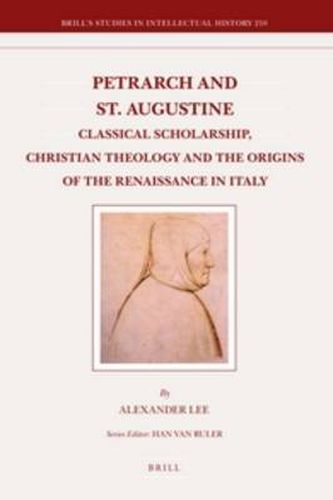Readings Newsletter
Become a Readings Member to make your shopping experience even easier.
Sign in or sign up for free!
You’re not far away from qualifying for FREE standard shipping within Australia
You’ve qualified for FREE standard shipping within Australia
The cart is loading…






Despite the high regard in which Francesco Petrarca (1304-74) held St. Augustine, scholars have been inclined to view Augustine’s impact on the content of Petrarch’s thought rather lightly. Wedded to the ancient classics, and prioritising literary imitation over intellectual coherence, Petrarch is commonly thought to have made inconsistent use of St. Augustine’s works. Adopting an entirely fresh approach, however, this book argues that Augustine’s early writings consistently provided Petrarch with the conceptual foundations of his approach to moral questions, and with a model for integrating classical precepts into a coherent Christian framework. As a result, this book offers a challenging re-interpretation of Petrarch’s humanism, and offers a provocative new interpretation of his role in the development of Italian humanism.
$9.00 standard shipping within Australia
FREE standard shipping within Australia for orders over $100.00
Express & International shipping calculated at checkout
Despite the high regard in which Francesco Petrarca (1304-74) held St. Augustine, scholars have been inclined to view Augustine’s impact on the content of Petrarch’s thought rather lightly. Wedded to the ancient classics, and prioritising literary imitation over intellectual coherence, Petrarch is commonly thought to have made inconsistent use of St. Augustine’s works. Adopting an entirely fresh approach, however, this book argues that Augustine’s early writings consistently provided Petrarch with the conceptual foundations of his approach to moral questions, and with a model for integrating classical precepts into a coherent Christian framework. As a result, this book offers a challenging re-interpretation of Petrarch’s humanism, and offers a provocative new interpretation of his role in the development of Italian humanism.